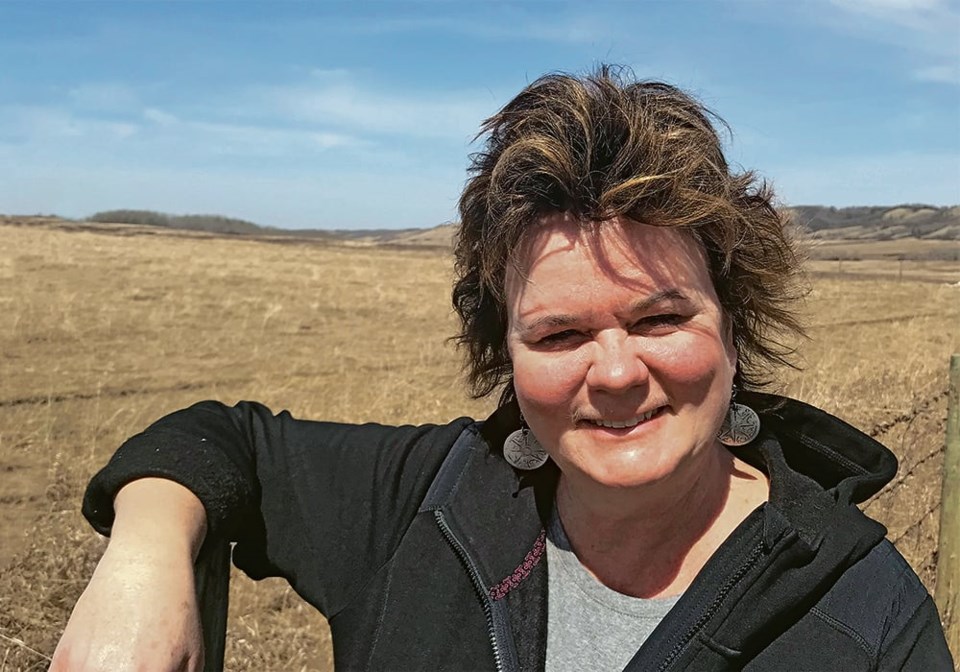In my 20 or so years working as a journalist, I’ve interviewed probably 5,000 people or more.
That includes politicians, corporate leaders, ag industry leaders, scientists, agronomists, board directors, advocates, lobbyists and farmers.
I don’t keep a list with their names and positions.
But if I would rank them in order of my favourite people to interview, Johanne Ross would be in the top five. Maybe No. 1.
Ross, a member of the Canadian Agricultural Hall of Fame, is stepping down from her role as executive director with . The organization announced her retirement Jan. 31. Her last day of work will be Feb. 9.
“Please join the Board of Directors of Agriculture in the Classroom – Canada in extending best wishes to Johanne Ross, who will step back from AITC-C after seven years as the Founding Executive Director of our organization.”
Ag in the Classroom Canada expanded rapidly under Ross’ leadership, as it now leads 10 provincial organizations and is the primary voice for agricultural education in the country.
“(AITC-C) is a Canadian charitable organization with a vision to bring agriculture to every classroom, inspiring every student,” its website says.
The organization has become a national force in connecting students to agriculture. In 2021-22, AITC-Canada led programs that directly reached 2.3 million students and another 13 million people through social media.
That’s a massive number, considering the challenges of COVID and issues related to the pandemic.
Ross, who lives in Minnedosa, Man., was possibly destined to lead a group like Ag in the Classroom Canada.
“My dad was with United Grain Growers, so we had agriculture in our home. There were five of us kids in our family, and we all ended up taking our ag degree,” said Ross, who grew up in Brandon and Winnipeg.
As a teenager, she also considered becoming a teacher. In Grade 12, she applied for the faculty of education at the University of Manitoba, but a visit to an agricultural trade show with her siblings changed her mind.
She wound up studying agriculture at the U of M, where she met her husband, a farmer from Minnedosa.
After university, Ross held jobs in the crop inputs and feed business, before taking time off to have children. In 2000, she took a position with Ag in the Classroom – Manitoba, because her sons were of school age and she wanted to return to the workforce.
“(It sounded) like something I would love because… (it) is a neat way to combine my other interest in education,” she said.
Before Ross arrived, AITC-Manitoba would send curriculum material to schools and hope that teachers would use it in their classrooms. Ross quickly realized that strategy was a mistake.
Farmers and people in the ag industry needed to be in the classroom, talking about what they do and why they love their jobs.
“That’s the foundation of our success – telling the stories of the real people in agriculture,” Ross said in 2021.
Having a farmer, veterinarian or crop scientist in the classroom, rather than a worksheet about food and farming, made all the difference.
“You see the students light up when they make these connections…. The food on their plate and how it actually got there. (Because) they’re not usually thinking much past the grocery store.”
Trish Jordan, former Monsanto spokesperson and former president of Ag in the Classroom Manitoba, neatly summarized Ross’ ability to connect with students, teachers, corporate executives and everyone she met.
“If I was going to choose any word to describe Johanne, I would use passionate…. That doesn’t mean that people before her didn’t have that same capability, but Johanne certainly has a unique ability to communicate about agriculture and help people see what a great place it is to be,” Jordan said in 2011.
In addition to her work developing and leading programs for students, Ross helped AITC-Canada build relationships with ag leaders in the public and private sector.
“She raised the profile of Agriculture in the Classroom at the national level and secured significant financial support from Agriculture and Agri-Food Canada as well as many sector partners, to support our critical mission of creating agriculture and food literate citizens,” AiTC-Canada said in the release announcing her retirement.
In 2021, Ross said it’s difficult to measure the impact of Ag in the Classroom. Building a population of Canadians with a basic knowledge of farming and food will take time.
“It’s a long game. And it is going to take a while to make that big difference,” Ross said. “But reaching two million students last year (in 2020) was pretty monumental. So maybe it will happen sooner than we think.”
Because of Ag in the Classroom programming, thousands of kids are aware of where their chocolate milk comes from, or how barley is different from wheat.
And, possibly today, a teenager in suburban Toronto will eat french fries at McDonald’s for lunch. And while dipping a fry in ketchup, she might think about farming and the soil used to grow the potatoes, because a potato farmer from New Brunswick came into her classroom in Grade 6.
It’s impossible to know, but the experience from Grade 6 might inspire that teenager to study soil science at the University of Guelph. Or, she might think differently about food and farming when she’s a parent.
But that connection to agriculture did happen and it could have an impact on that young Canadian, thanks largely to the work of Johanne Ross.
Contact [email protected]




